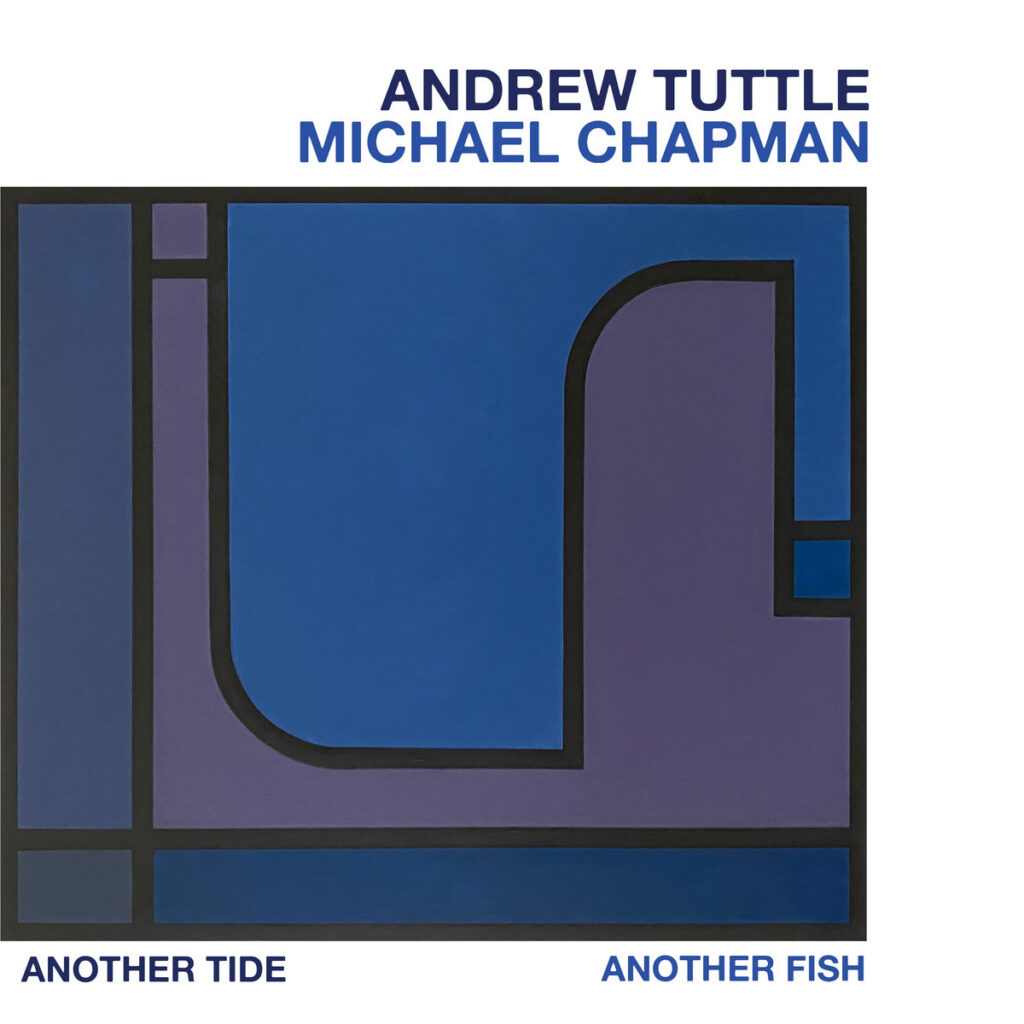When Michael Chapman died, aged 80, in September 2021, he was an esteemed elder. It’s therefore no surprise that Andrew Tuttle should have been asked to oversee Another Tide, Another Fish, a release that beautifully reworks some of Chapman’s final recordings. But the respect accorded to Chapman today is in sharp contrast to the 1980s, a decade when this veteran of the 1960s British folk scene was in danger of becoming a forgotten figure.
Partly, this was down to bad luck. Chapman’s second album, Fully Qualified Survivor (Harvest, 1970), spent a single week in the UK Top 50, but that was as near as Chapman came to a commercial breakthrough. Featuring a then unknown Mick Ronson on guitar, Survivor covered similar ground to Hunky Dory, one of many examples of Bowie stealing big. Later, Harvest refused to promote fourth LP Wrecked Again after Gus Dudgeon, the producer who oversaw Elton John’s ascent to superstardom in the 1970s, preemptively blew the record’s marketing budget by employing the London Symphony Orchestra.
There was also self-sabotage. When I interviewed Chapman in 2019 he was blunt about his own failings. “I was drinking a lot, I was screwing up,” he said of years when things “got scruffy”. For most of the interview, well-honed anecdotes flowed as Chapman talked easily of John Martyn’s excesses (“the only person I’ve ever thrown out of this house”), a lovingly nurtured antipathy towards Carl Palmer and Nick Drake’s otherworldliness, but here Chapman was reflective, pensive – and genuinely grateful his longtime partner, Andru, stuck with him.
Yet even as Chapman was flailing, his music was connecting with a new generation of musicians. As the 1990s progressed, his stock rose. Thurston Moore, who championed Chapman’s work, claimed the bare-bone atmospherics of Millstone Grit (1973) inspired Sonic Youth, a notion Chapman found boggling. He became friends with such figures as Jack Rose (“his imagination just kept on going”), Meg Baird and Steve Gunn. He would tour with improvisational collective The No-Neck Blues Band.
After struggling through the lean years, Chapman found his way back into the limelight in great part by being, alongside John Fahey, a key influence on those musicians – mainly guitarists – who were pioneering a cosmic Americana that mixed elements of the avant-garde with country and jazz knowledge. A self-styled “born improvisor”, Chapman could more than hold his own with these players and, as the 21st century rolled around, he was releasing both instrumental albums and song collections.
Within a discography daunting in its complexity and breadth, the instrumental Fish (2015) was especially important. As Andru remembers in sleevenotes for Another Tide, Another Fish, it grew out of Chapman messing around on guitar while in Eleuthera, “a long thin string bean of an island in the Bahamas” where the couple holidayed to escape the chill winters of their Northumberland home.
Having suffered “quite a lengthy writer’s block”, Chapman was moving forward, reworking old material and writing new music. Subsequently, Chapman made two Steve Gunn-produced albums for Paradise Of Bachelors, 50 (2017) and True North (2019), records where his ravaged voice projected a gravitas even Johnny Cash might have envied.
But Fish deserves to be seen as more than a prelude to these projects. Its importance to Chapman personally can be gleaned from the fact that he began work on a sequel and, after another Caribbean trip, laid down some basic tracks with longtime collaborator Alex Warnes. Chapman meant to return to the project, but never found the time.
It’s seven of these sketches that make up Another Fish, not given titles but simply numbered. Each is a work-in-progress demo, ranging in length from a snippet to a piece that runs close to 12 minutes, a combination in the latter case of harmonics and interweaving guitar runs that swirl and spiral without ever quite resolving. While the music isn’t fully formed, there’s a sense, as with Fish, of a musician rising to challenges set by those he himself inspired. The tracks have a surface sunniness, but an underlying bluesy melancholy sometimes asserts itself.
As to how this music came to be reworked for Another Tide, the story begins with the Basin Rock label gifting Andru a copy of Fleeting Adventure by Australian banjoist and guitarist Andrew Tuttle, an album she says helped her weather her grief. On a visit to Brisbane, Andru met with Tuttle. By the time she got back to the UK, he was grappling with the Another Fish recordings, reinterpreting and sometimes using the demos as the inspirations for new improvisations.
At which point Chapman fans could be forgiven for being worried. Over the years, there have been numerous occasions when the recordings musicians left behind have been treated without due care and attention. That really isn’t the case here. Tuttle, who travels musical byways Chapman himself tramped, clearly adores this music.
More important still is the sense that Tuttle has managed to navigate respect for the source material and awe at Chapman’s reputation. To return to that musical snippet, it’s expanded to become the six-minute-plus ‘Amidst A Half Dozen Saplings’. In contrast, ‘Wholly Unrelated To Four Seasons’ – each track on Another Tide has a number-themed title that enables you to map it onto its Another Fish source – is an exercise in cutting down, focusing on important details. While Tuttle’s approach varies by track, the consistent theme is to try to bring clarity via a mix of editing, playing along, sampling and processing.
The result is a collection that, while it lacks the retrospective finality of the song-driven True North, a meditation on the passing of time that closed Chapman’s career as a singer-songwriter, nevertheless underscores the idea of Chapman as a guitar player who didn’t need words to express himself. And that’s no mean feat on Tuttle’s part, especially as, coming to Another Tide cold, you could easily believe it was the work of younger artists pushing into new territory. Swim in it often, perhaps as a prelude to diving into Tuttle’s other work or Chapman’s sprawling back catalogue.





